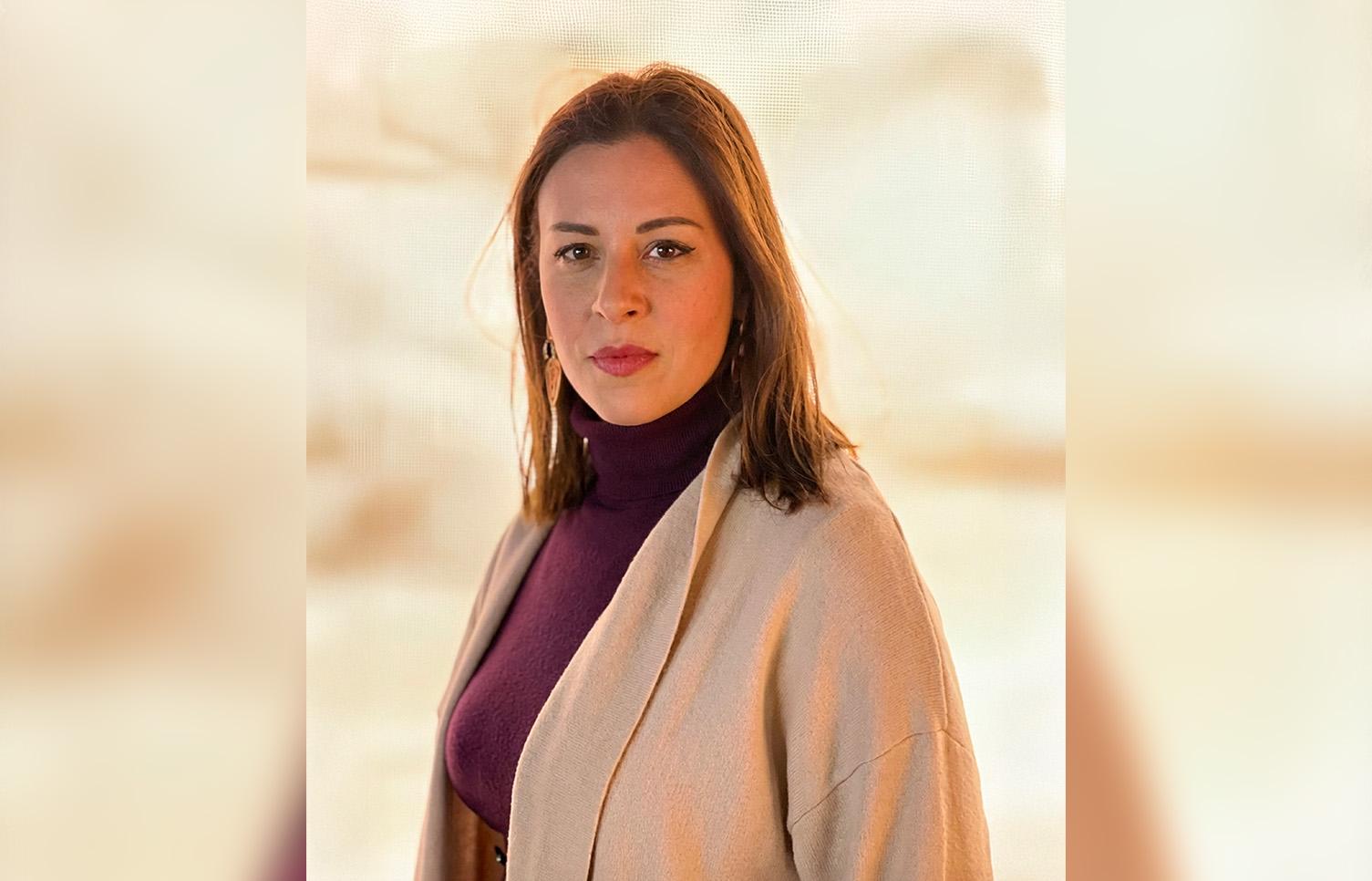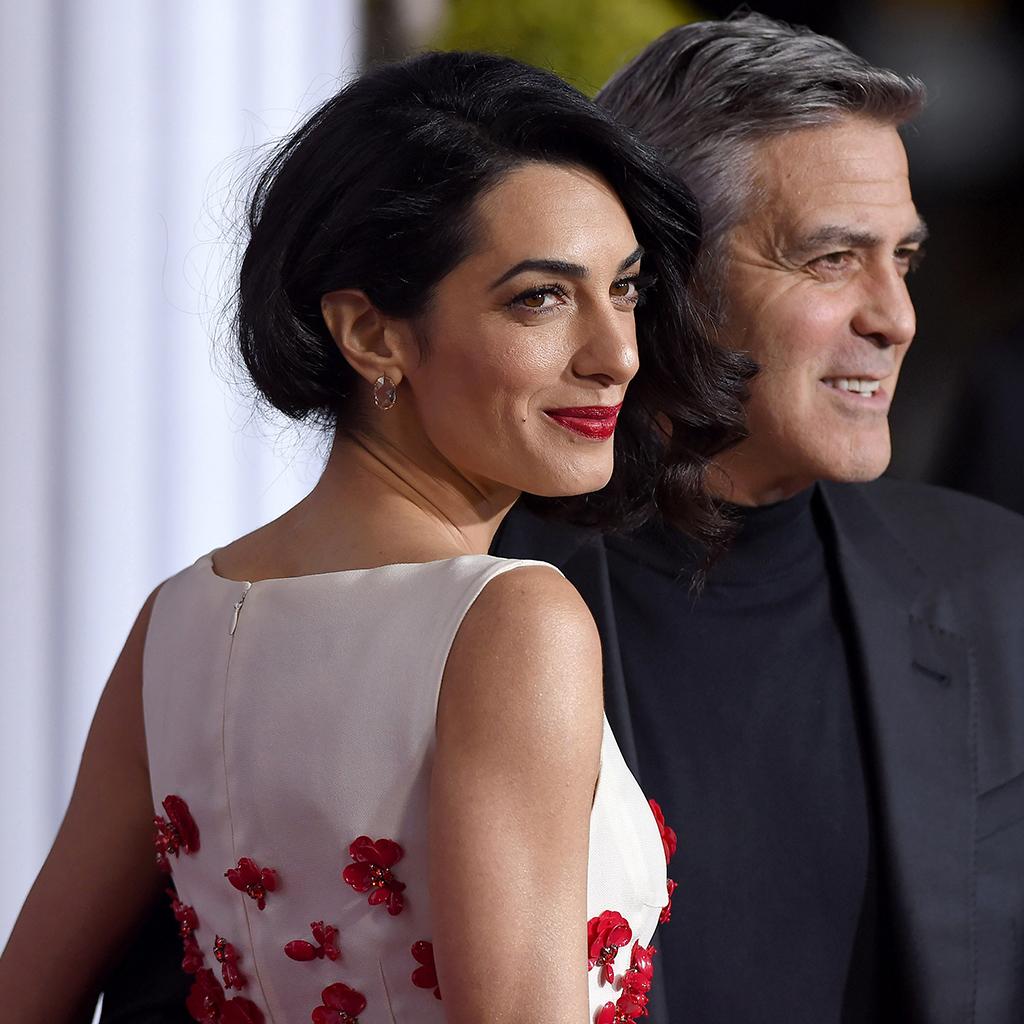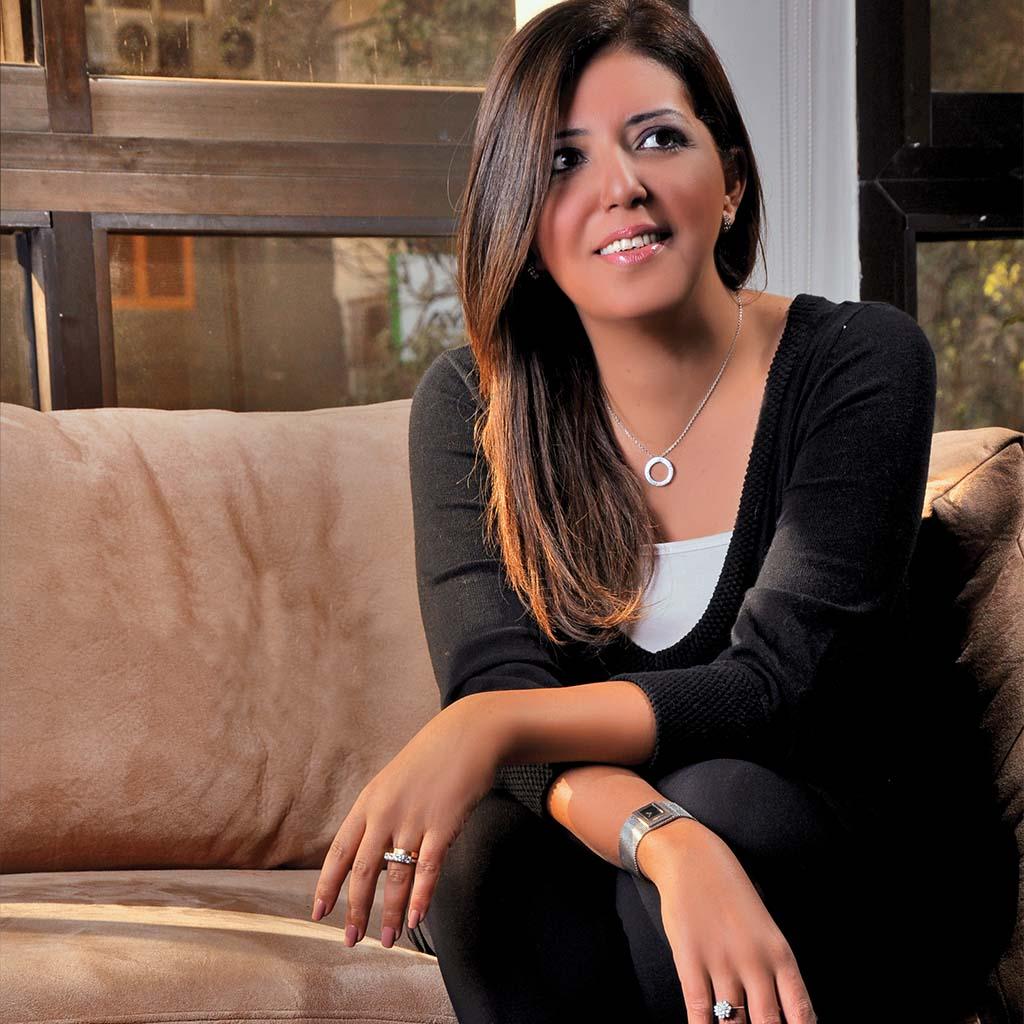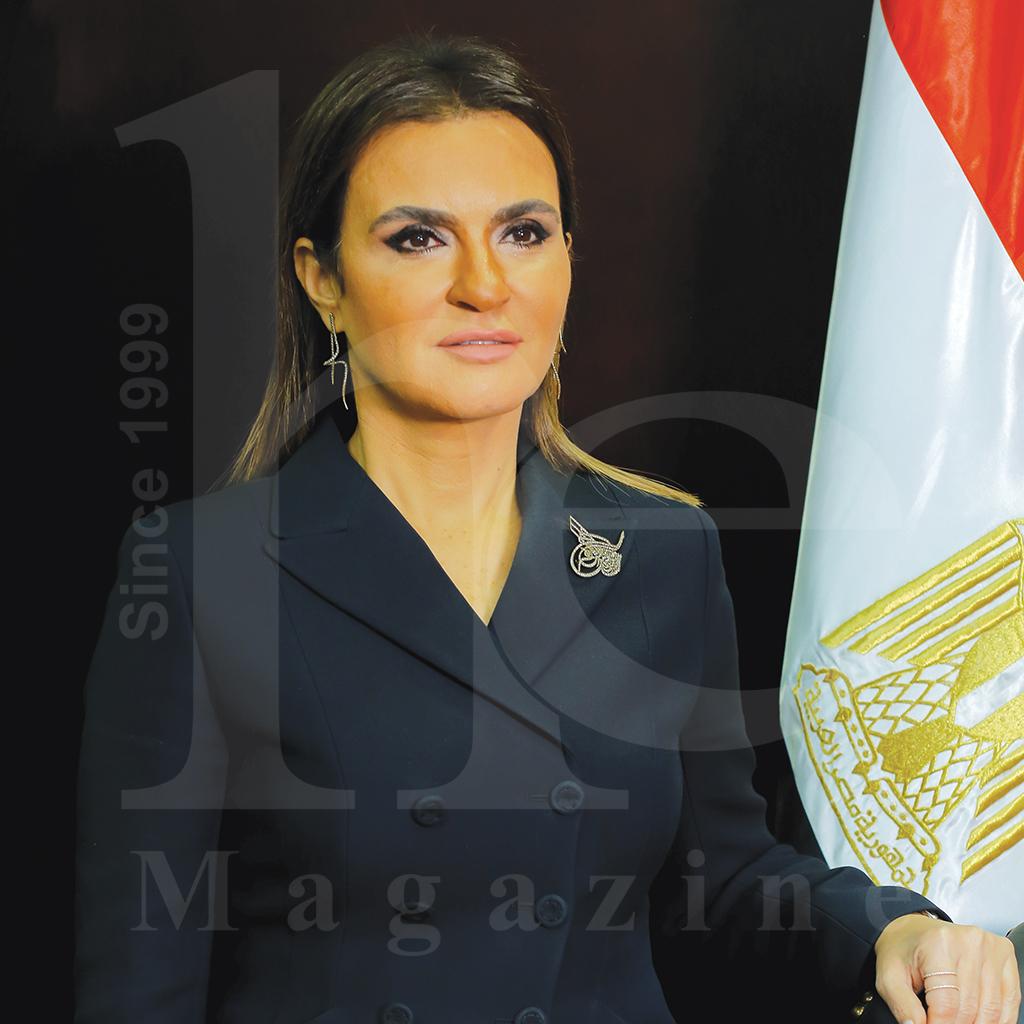
Date: 2018-04-30
The Cabinet’s Powerful Beauty
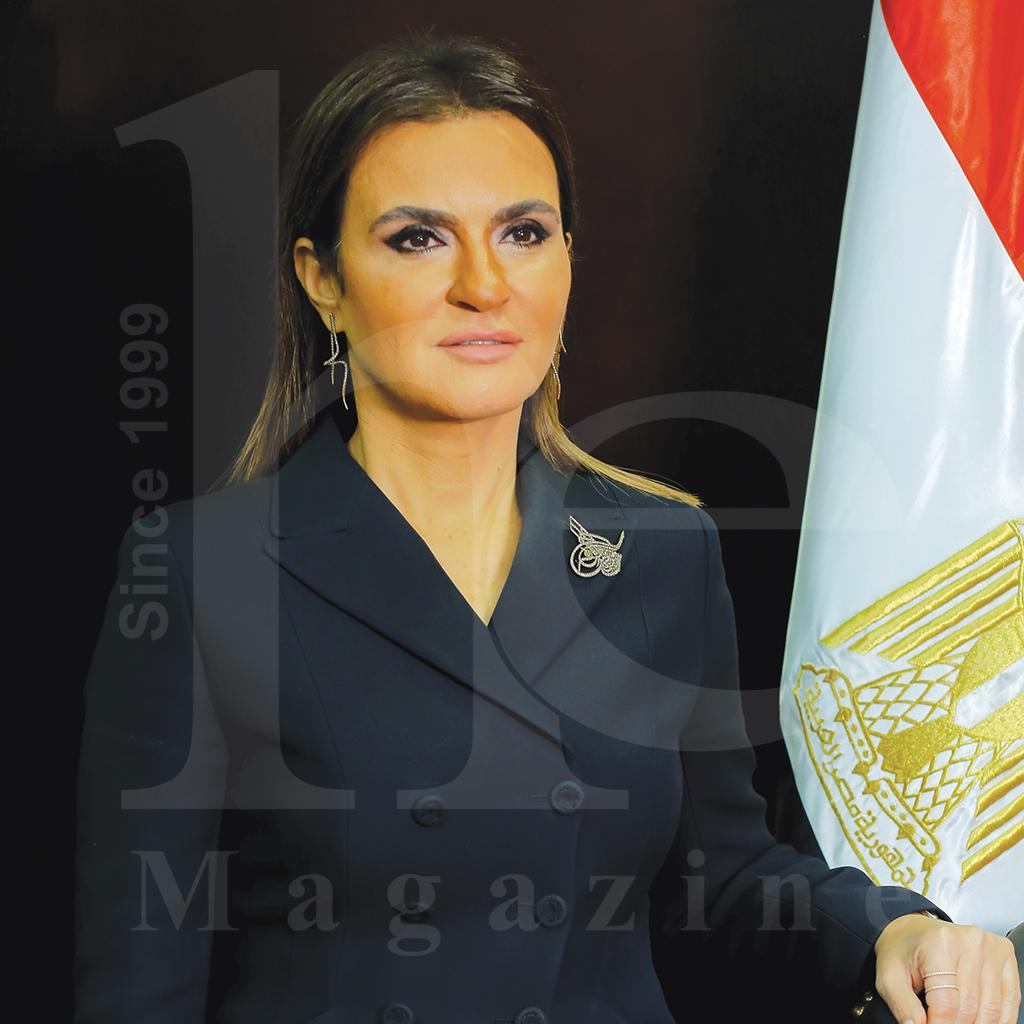
Being beautiful and looking elegant does not mean you cannot be take seriously as a woman.Dr. Sahar Nasr, the Egyptian Minister of Investment and International Cooperation, has proven this. Since stepping into office on September 19, 2015 as Minister of International Cooperation and then as Minister of Investment on February 16, 2017, Dr. Sahar Nasr has indeedproved that strong and influential women can also be pretty and chic.
Nasr has always spoken up about the challenges and opportunities that lay ahead and about how her goal as minister was to engage Egypt with the rest of the world through partnerships with the international community and to mobilize resources with the objective of achieving inclusive and sustainable economic growth. Job creation, especially for youth and women, has always been on the top of her agenda as well as supporting lagging regions and enhancing access to markets.
In an exclusive interview, Minister Sahar Nasr opened up to HE Magazine about both her career in the government and her personal life as a wife and mother.
Interviewed By: Amr Selim
During her first mandate as Minister of Investment and International Cooperation, Dr. Sahar Nasr has made several strides in restructuring and reforming the ministry, such as establishing both a unit for monitoring and evaluation and a policy development and strategic planning unit meant to increase the efficiency and effectiveness of official development assistance to Egypt. Her efforts and contributions were recognized when she was granted the 2015 prize of the most influential woman in the Arab economic sector.
Dr. Nasr’s remarkable achievements have earned her the vote of confidence from Egypt’s political leadership and with this confidence she was selected to head the Ministry of Investment and International Cooperation in 2017. Since this time, Dr. Nasr has focused on strengthening Egypt’s ties with its existing international partners as well as exploring new opportunities for cooperation, all through the establishment of mutually-beneficial partnerships. This has involved consolidating Egyptian-Gulf relationships, expanding and deepening ties with African states, and exploring new relationships with Asian partners. She is the National Coordinator of the National Committee for the Follow-Up on the Implementation of the Sustainable Development Goals. Dr. Nasr also serves as Governor of Egypt to several institutions such as The World Bank, The European Bank for Reconstruction and Development, Arab Bank for Economic Development in Africa, and Asian Infrastructure Investment Bank.
Dr. Nasr has extensive experience in negotiating and securing international grants and loans, especially within her role as Lead Economist at the World Bank. She has managed funds exceeding $4.3 billion that were injected into the Egyptian economy in the areas of economic reform, economic policy development, small and medium enterprise (SME) development and social housing. Furthermore, she has broad expertise in organizing and heading committees of several international economic aid and foreign investment funds as well as in the coordination with several international organizations, on top of which is the United Nations.
Dr. Nasr’s career heavily involved designing and supervising numerous reform and finance programs in the Middle East, Asia, Latin America, and Central and Eastern Europe. She has accomplished numerous success stories in the areas of economic and financial strategy design.
HE Magazine sat down with the minister to ask several questions about her activity in office and all that she has accomplished so far. The minister started by talking about how she was handling the investment and international cooperation sector in Egypt and abroad—which encompasses among the most important issues on the table of the Egyptian government. According to the minister, the establishment of various national infrastructure projects over recent years has been the greatest achievement of the investment ministry.
In the following text, Dr. Sahar Nasr answers some questions about her position and the recent actions of the Ministry of Investment and International Cooperation.

The Best Investments
Investment is a fundamental basis and center for economic development anywhere. Egypt is going through a vital period in its history, and after three years of continuous hard work, the Egyptian government is now seeing the fruits of its economic reform. We are building institutions and opening up to the world in different fields as well as moving towards achieving sustainable development and improving the living conditions of citizens.
Thanks to the support of President Abdel Fattah Al-Sisi, we were able to establish modern infrastructure such as transportation, electricity, sewage, water, housing, ports, and airports. There have also been other national projects that were highly praised by international institutions including the New Suez Canal and its affiliated economic zone, the New Administrative Capital, New Al-Almein City, Al-Galala, and the one-and-half million feddans. Egypt has now become a special international spot with an organized and legislative environment attractive to more participation from the private sector.
The country has also worked to achieve overall growth in various sectors of society, youth funds, and supporting emerging investment projects with the aim of creating more job opportunities and recruitment.
The government was also keen to attract investments by offering special incentives to projects held in less-developed areas in order to ensure a fair distribution of the fruits of development.
The Comprehensive Investment Map
To ease matters for investors, the government was keen to launch, for the first time ever, the comprehensive investment map, which accurately determines the investment opportunities for all sectors and in all governorates. This includes information for investment projects of electricity, renewable energy, transportation, industry, petroleum, natural gas, agriculture, technology, heritage, tourism, education, and health in addition to the New Suez Canal and the New Administrative Capital projects.
The investment map also displays the government infrastructure projects to add private investments to what has already been achieved. Accordingly, both the public and private sectors become integrated within the investment system in line with development plans and market needs.
Furthermore, the investment map includes details and data on the availability of various services near the planned and scheduled projects. The map also demonstrated the labor density and human hands near each region.
Bureaucracy and Obstacles
Investor Service Centers are being established in all governorates. For the Economic Reform Plan to achieve its objectives efficiently, work at the Investor Service Centers has been completed with the aim of eliminating bureaucracy and simplifying procedures to all investors regardless of the size of their investments.
The Investor Service Centers are fully equipped with the latest up-to-date technology and work systems that meet international standards. Thanks to the support of the political leadership, it only took a few months for the service centers to be ready to welcome and serve the investors—a record time compared to the size and potential of this giant structure, which is unprecedented in Egypt. Such a facility would definitely place the country among the leading nations in the field of business facilitation and attracting investment in the region, since the center provides both local and foreign investors the services to finalize all required procedures to start their companies in record time all in one place. That is why these centers comprise representatives from all ministries and authorities related to establishing new projects.
The services offered at the Investor Service Centers include all procedures required for the foundation and launch of new companies from setting and signing legal contracts, to paying fees, registration, and claiming all documents needed to establish the companies in the same day. The center also offers online establishment of companies on the same day with simple steps including online payment of the required fees via credit card.
According to Article 21 of the New Investment Law, all 32 ministries and authorities are obliged to establish their own offices in these centers to finalize all procedures needed by investors including ministries of social solidarity, interior, justice, finance, and the authorities of Real-Estate and Financial Monitoring as well banks like Banque Misr, CIB, and Alex Bank.

Investment Law no. 72 of year 2017
This new investment law came twenty years after the last one. It is meant to adjust to the new developing era of the world economy and offer promising opportunities and wide prospects for both local and international investors, which in turn will serve the economic development we are seeking as a nation through a package of economic incentives in ‘sectors of priority’ and in accordance with the State’s Economic Development Plan.
The law focuses on some major points including Investment Guarantees, in which the law guarantees a fair treatment to both local and international investors as well as protects the capital money and the project from any arbitrary measures, meaning that investment projects can’t be nationalized, imposed of custody, seized, or have funds frozen except on the basis of a judicial ruling.
According to the general incentives, all listed projects in the new law submit to the following privileges except those listed as Free Zones. The privileges include exemptions from fees of foundation, credit facilities, and a five-year land registration as of the date of foundation.
The law also allows collecting a reduced customary tariff with a 2% unit on all imported tools and machines used to establish the company and the projects according to Article 4 of Law no. 186 of the year 1986. All these privileges also apply on public projects and utilities.
Special incentives apply on companies founded after the ratification of this law and according to the New Investment Law. This includes 50% off the total investment cost of the listed projects in the geographical areas in ‘the most in need’ of development.
Additionally, projects that require a large amount of labor, middle and small projects, and projects that use renewable energy will enjoy a 30% off tax exemption of investment costs.
After addressing our questions about the investment sector, the interview moved to the minister’s personal life as a wife and a mother. Dr. Nasr was very generous to share her family lifewith HE Magazine
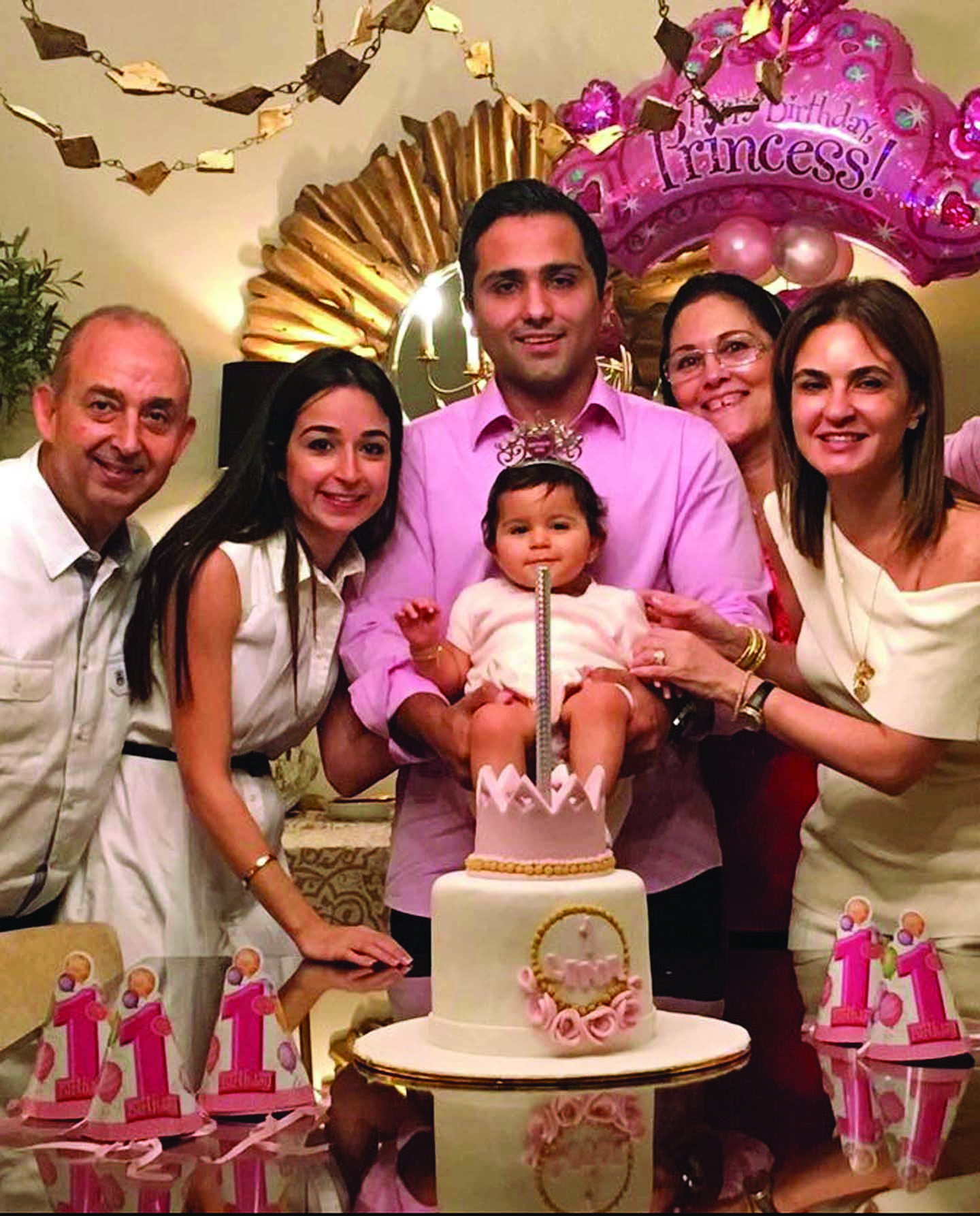
The Turning Point
Dr. Sahar Nasr, who was born in 1964, is married to architect Magdi Tolba, who has always been proud of his successful wife. She is a mother of two: 30-year-old Sarah and 27-year-old Ahmed. Nasr revealed that joining the Presidential Advising Council in March 2015 was the turning point of her life. “It was my first official affiliation to public work with a group of specialists where our task was to create an experienced hub to assist in making decisions based on a thorough study, analysis, and evaluation of the economic situation. I was so thrilled that I was part of this team whose target was to execute the government’s ambitious economic program and find solutions and alternatives to the society’s problems,” Dr. Nasr shares.
Institution and Governance
“Working at international organizations has definitely positively affected my work in the government. I worked within an institutional environment in a specified framework system and program with general goals and detailed timelines based on discipline and accountability and those were the real benefits I claimed from working there,” shares Nasr.
“Working in several countries of varying economic levels in Europe, Asia, and Latin America has enriched my international experience. Those countries have had different circumstances and challenges. Some were developing countries, others had minor small, and still others were highly developed in both industry and technology. My 20 years of experience with the International Bank gave me the opportunity to be familiar with the different policy-making processes in those countries and institutions. It also gave me the opportunity to realize that participation in specific decisions when restructuring was necessary and enhanced my negotiation skills in international deals.
Interestingly, most of the international figures I meet with nowadays are well-known to me, having met them or worked with them before in developing projects in their own countries.”
Daddy’s Daughter
Nasr attributes her professional success to her father. She states, “My father was such an exceptional person. We had a special bond that goes beyond the usual father-daughter relationship. He wasn’t just a father to me but a mentor and role model. He raised us up and instilled in us core principles and values and taught us how to be religious. He supported women working and that is why he had chosen to marry a working woman—my late mother who was a lawyer. My father was always there for me, backing me up and pushing me forward.”
The Biggest Challenge
Nasr recalls the biggest challenge of her life sharing, “My mother’s illness and my daughter’s wedding coinciding was the greatest challenge I have faced in my life. I experienced such conflicting feelings: happiness for my daughter’s marriage and extreme sadness over my mother’s illness. I used to feel a lot of guilt when when I would have to leave my mom and assist my daughter in her wedding preparations, even if just for a few hours. My mother passed away a month after my daughter’s wedding.”
The Achievement
For the minister, claiming her doctoral degree was the most significant achievement of her life. “It is the closest to my heart because I was a working, married woman and a mother as well,” Nasr expresses.
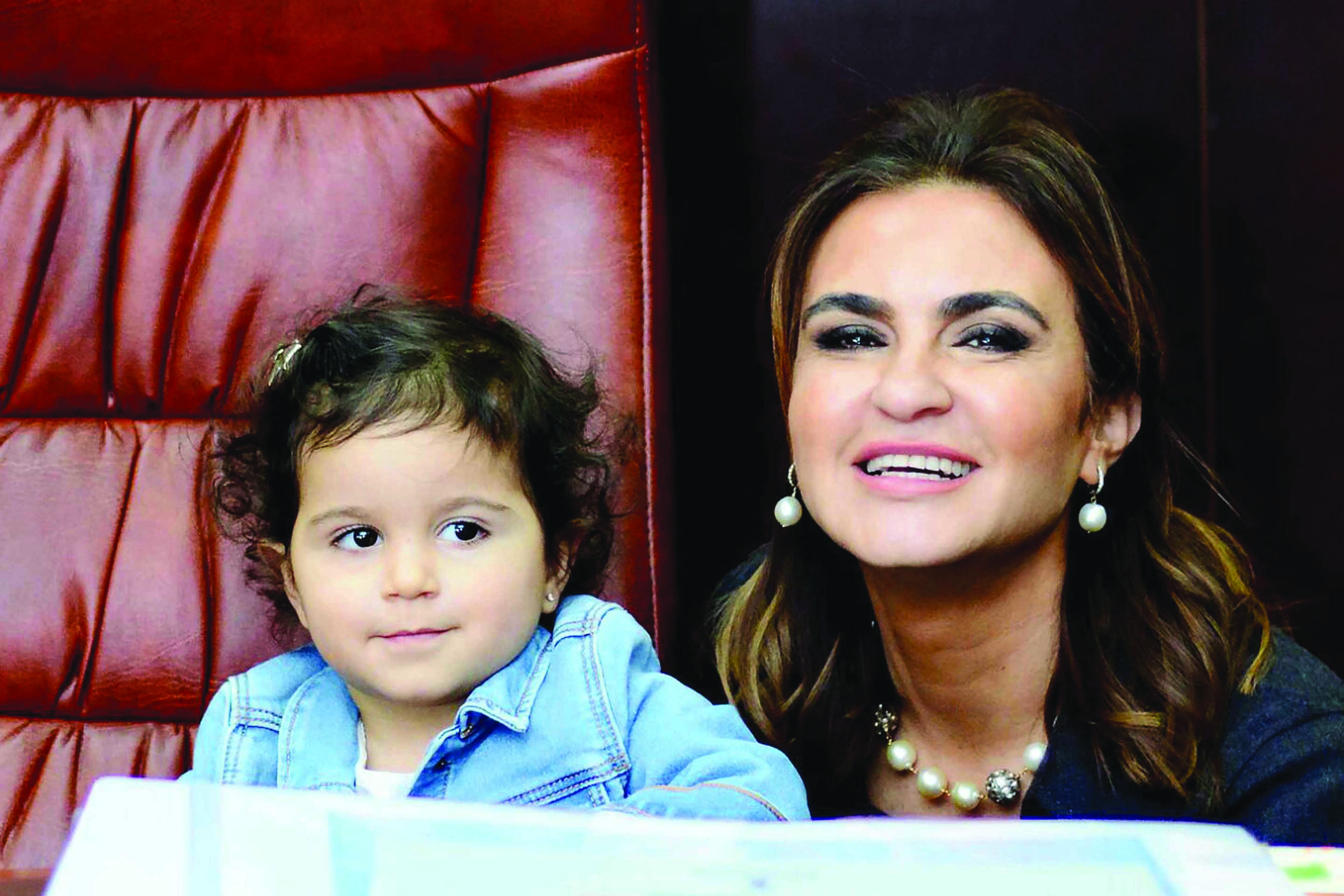
Faith
Nasr confides to HE Magazine as she admits that she has never felt ‘desperate’ in her life. “I have never reached a situation in which I have felt ‘desperate’ or felt the need to give up. I have always had faith in God and have always believed that as long as one feels content and satisfied with whatever she has while sincerely exerting all of one’s effort, God will always reward. I might have gone and experienced feelings of sorrow, just like anybody else, but I am naturally an optimistic and positive person,” she shares.
The Patriot
Working within the government and serving one’s country is Nasr’s most rewarding job ever. She states, “Being at an international organization fulfills my moral and financial ambitions while working for my own beloved country fulfills the ambitions, hopes, and aspirations of the citizens. There is no such feelings as when you feel that you have served your country and achieved and completed your task under some hard circumstances.”
The Role Model
Nasr confirms that her mother is her role model and will always be. “She is my perfect example, especially in her perseverance. Even on her death bed, she used to urge me to go to work,” she shares.
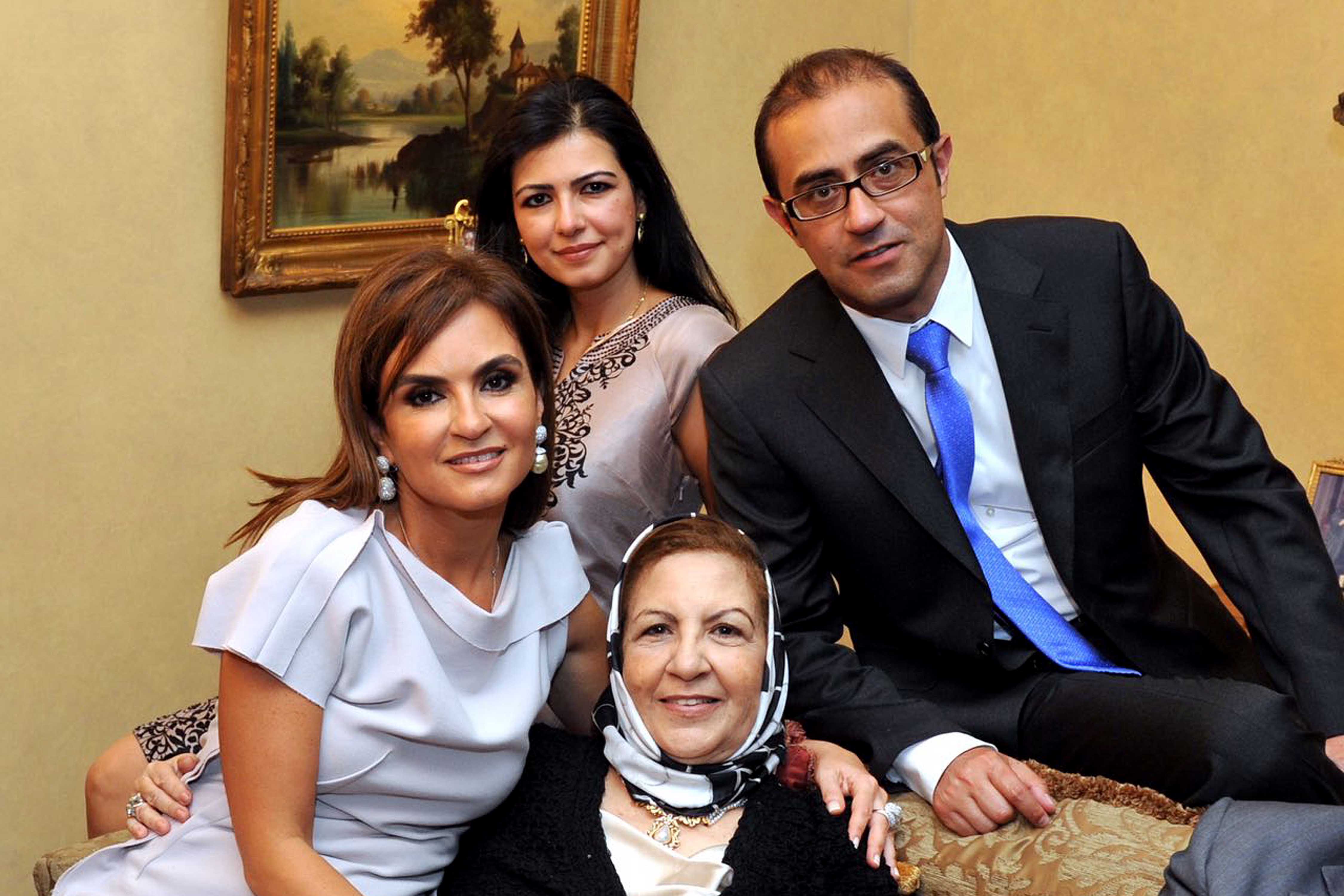
The Toughest
Life has never been easy for anyone. There are always the good days and the bad days: moments of tears and joy. And the minister is just a human being, like all of us. For her, the hardest situations of her life were when the whole nation was suffering from political and economic turmoil. According to Nasr, “When I felt we were about to be robbed of our country, that was the toughest period of my life. It wasn’t just a moment, but a period of time. During that time, I was afraid for my country, my children, my family, and myself.”
The Advice
‘Trust in yourself’ and ‘believe in your capabilities’ are the two-pieces of advice the Minister of Investment and International Cooperation would like to share with all Arab women.

